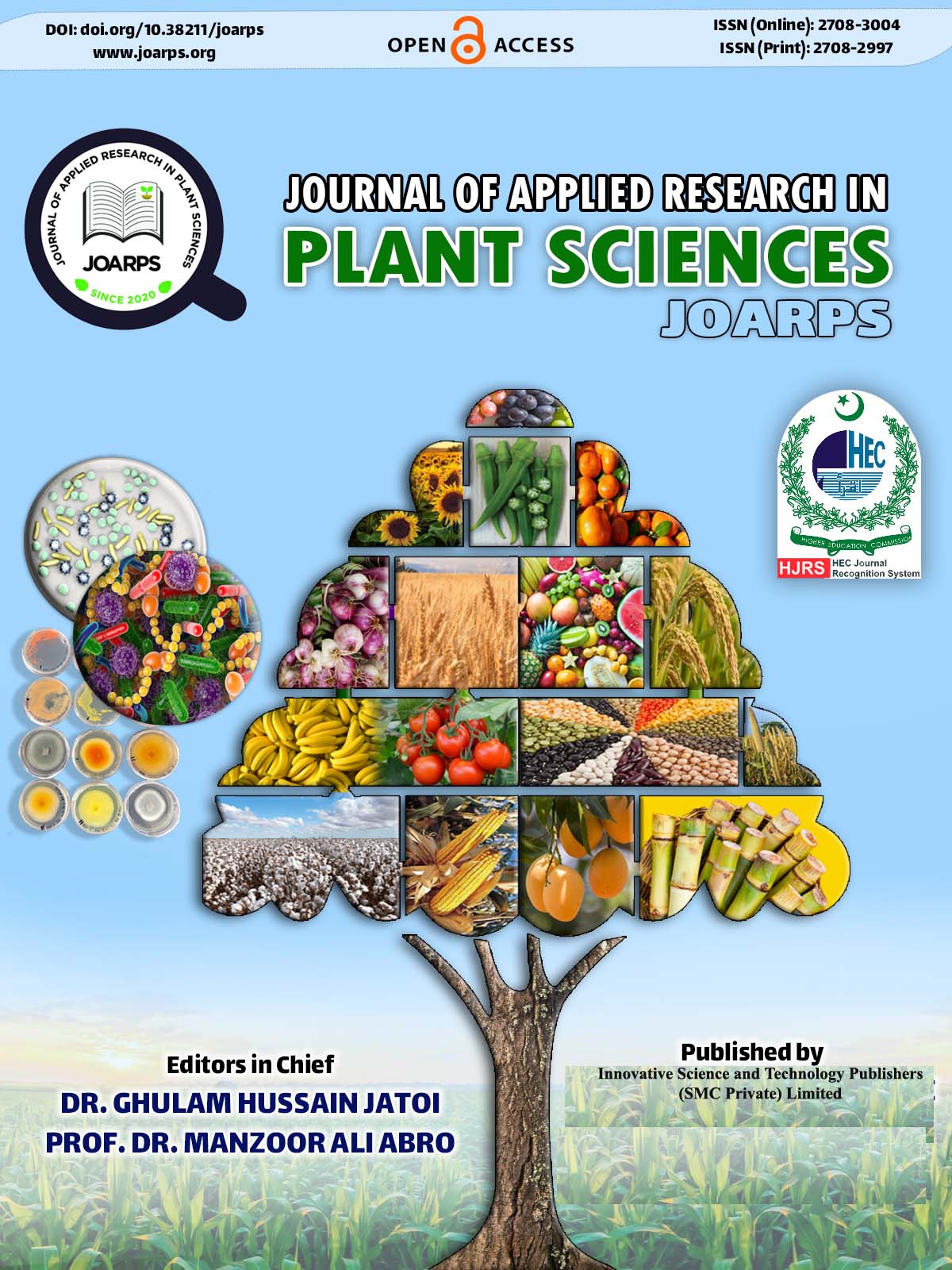Ethics, Integrity & Retraction Policy
The Journal of Applied Research in Plant Sciences (JOARPS) is committed to upholding the highest ethical standards in scholarly publishing. This policy aligns with the Committee on Publication Ethics (COPE) guidelines and international best practices to ensure research integrity, transparency, and accountability. Authors, reviewers, and editors are expected to adhere to these ethical principles throughout the publication process.
1. Authorship & Contribution Policy
- Authorship credit is limited to individuals who have made substantial contributions to the research, manuscript drafting, or revision.
- All co-authors must approve the final version before submission.
- Co-supervisors or project co-PIs do not qualify for authorship by default unless they have made significant intellectual contributions.
- The corresponding author is responsible for ensuring authorship compliance and must provide a statement of individual contributions at the end of the article.
2. Initial Screening & Peer Review Policy
- Upon submission, all manuscripts undergo preliminary screening for journal scope, formatting, and plagiarism.
- Manuscripts passing this stage are subjected to double-blind peer review by at least two independent reviewers.
- Authors may suggest reviewers, but the editorial team retains final selection authority to ensure an unbiased review process.
- Reviewers must maintain confidentiality, declare conflicts of interest, and provide an objective, fair, and timely assessment of the manuscript.
3. Research Integrity & Misconduct Policy
JOARPS strictly prohibits:
- Plagiarism (including self-plagiarism) – All manuscripts are screened using Turnitin software.
- Data fabrication or falsification – Altering, misreporting, or manipulating research data.
- Redundant publication – Submitting the same research to multiple journals or republishing a previously published work without significant modifications.
- Gift or ghost authorship – Adding individuals who did not contribute to the work or excluding deserving authors.
- Unethical research practices – Failing to obtain necessary ethical approvals for studies involving human or animal subjects.
Violations may result in manuscript rejection, author bans, institutional reporting, or retraction of published articles.
4. Retraction, Corrections & Erratum Policy
- Corrections: Minor errors that do not affect research conclusions will be corrected via an erratum or corrigendum.
- Retractions: Articles will be retracted if serious ethical breaches (e.g., plagiarism, falsification, or misconduct) are discovered after publication.
- Expressions of Concern: If an ethical concern is under investigation, JOARPS may issue a temporary notice until the issue is resolved.
All retractions and corrections follow COPE guidelines and will be linked to the original publication.
5. Conflicts of Interest (COI) Policy
- Authors must disclose any financial, institutional, or personal conflicts of interest that may influence their research.
- Reviewers should recuse themselves from evaluating manuscripts if they have any conflicts (e.g., collaboration with authors, financial interests).
- Editors will not handle submissions where conflicts exist and will delegate responsibilities to another editorial member.
6. Ethical Oversight & Human/Animal Research Policy
- Studies involving human subjects must comply with the Declaration of Helsinki and provide ethical approval details.
- Research involving animals must adhere to internationally recognized ethical guidelines (e.g., ARRIVE, IACUC).
- Authors must obtain informed consent from human participants, particularly for studies involving personal data, images, or case reports.
7. Responsibilities of Authors, Reviewers & Editors
Authors
- Ensure originality, data integrity, and proper citation.
- Obtain permissions for previously published figures, tables, or data.
- Maintain raw data for at least five years and provide it if requested for verification.
Reviewers
- Maintain confidentiality and review manuscripts objectively.
- Disclose any conflicts of interest and decline review if a conflict exists.
- Provide constructive feedback to help improve manuscript quality.
Editors
- Ensure a fair, transparent peer-review process.
- Handle ethical complaints and allegations of misconduct following COPE flowcharts.
- Take appropriate corrective actions (corrections, retractions) when ethical violations occur.
8. Reporting Misconduct & Appeals Process
- Allegations of ethical breaches (e.g., plagiarism, authorship disputes) can be reported to the Editor-in-Chief.
- A Fact-Finding Committee (FFC) will investigate and make recommendations.
- Authors have the right to appeal editorial decisions by submitting a formal justification within two weeks of notification.
For detailed ethical guidelines, refer to:


